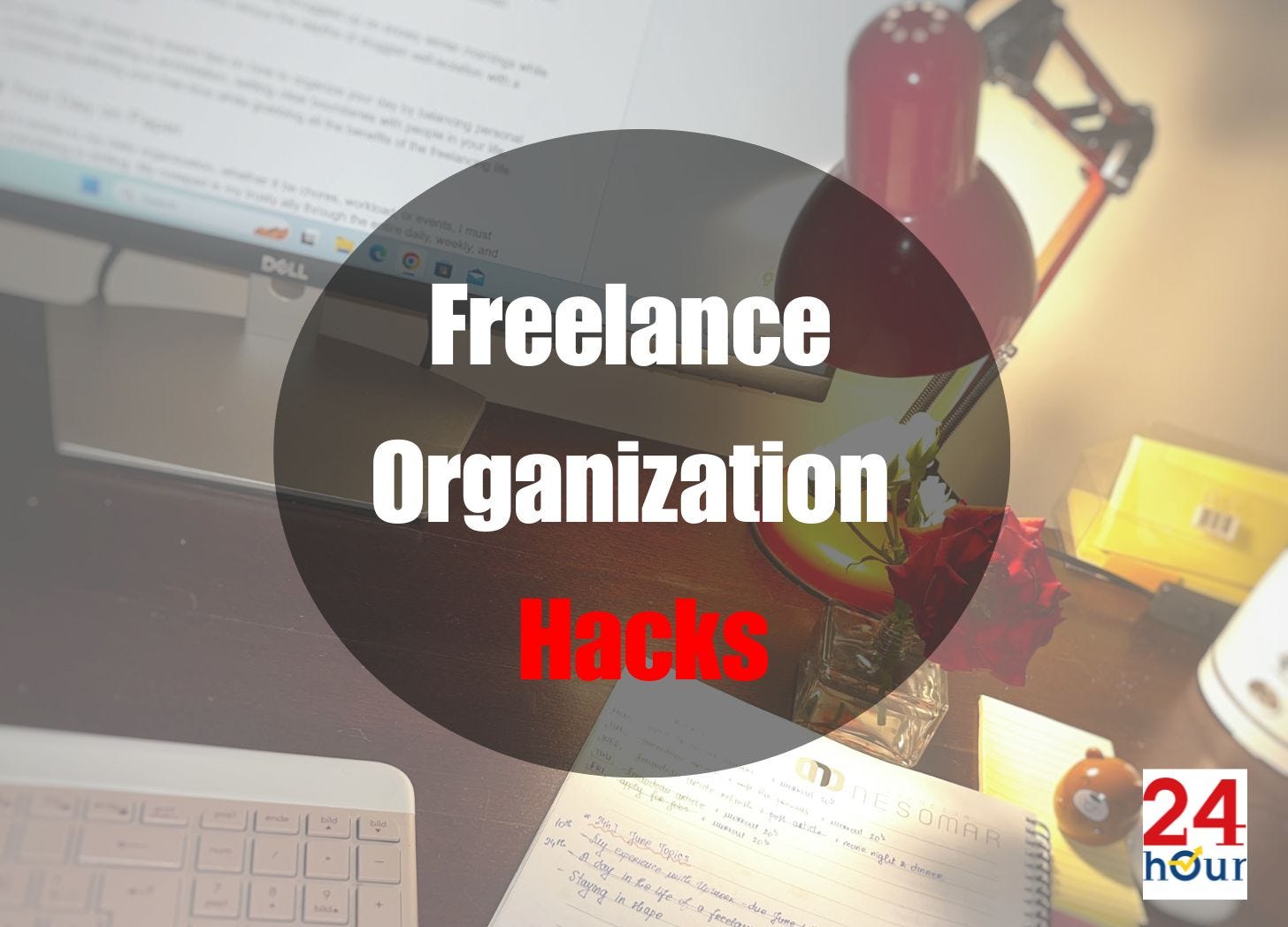The Life of a Freelancer: Organization Hacks
The best thing you can do for your business and mental health is to unapologetically protect your right to call your home your office during work hours.
Highlights
How to write down daily, weekly, and monthly plans to stay organized and balanced.
How to set up a dedicated work area at home to boost productivity and focus.
How to limit distractions and separate work time from personal time to maintain mental well-being.
Living the remote work dream for almost a decade, I affirm work-from-home is every bit as…
Keep reading with a 7-day free trial
Subscribe to 24Hour Journal to keep reading this post and get 7 days of free access to the full post archives.




